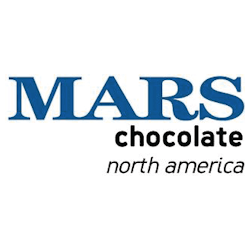Creating a sustainable cocoa sector that can meet the chocolate industry's long-term demand for cocoa, the essential raw material for chocolate, while providing economic opportunities to cocoa farmers will require billions of dollars in agricultural investments across research, third-party certification and technology transfer to farmers, according to Mars, Inc., one of the world's leading chocolate manufacturers.
Although many groups and individual companies have made singular investments towards a more sustainable sector, to benefit a significant portion of the world's five to six million cocoa farmers, Mars believes the industry must work together even more closely to scale up positive impacts for farmers and achieve higher yields without compromising limited natural resources.
Cocoa sustainability is a large-scale issue that needs large-scale effort and investment
Announcing that it invested $30 million in cocoa sustainability efforts in 2011, after spending more than $20 million annually in the previous two years, Mars is calling for an expansion of previous, smaller scale programs and a renewed focus on farmer benefit as the industry's chief priority. Mars will likely match 2011's investment each year during the next decade.
Earlier this year, the company announced that it had met its 2011 goal of purchasing 10 percent of its total cocoa supply as certified sustainable, and in 2012 it will exceed its original target of 20 percent, making it the largest user of certified cocoa in the world. Based on current buying arrangements, Mars projects that this will be nearly 90,000 metric tons of certified cocoa this year.
Mars is calling upon the sector to collaborate for the common good
"We believe that the best approach to cocoa sustainability is to partner with our industry peers, governments, certification organizations and NGOs for the common good," said Barry Parkin, Mars Global chocolate procurement and sustainability head, in a prepared statement. "The billions of dollars of investment needed requires the large global manufacturers to work together to make this happen at meaningful scale. We can see that the industry is taking this challenge very seriously, as there is a lot of good work happening, but we strongly believe that all of these efforts can be combined as part of a sector-wide effort to achieve the results we all want to see."
The announcement coincides with the publication of Mars' second annual Principles in Action summary, which details the company's approach to business and Mar's commitment to put its Five Principles into action to make a difference to people and the planet through their performance. Mars remains a private, family-owned business dedicated to the objective first expressed by Forrest E. Mars, Sr. in 1947 – to 'create a mutuality of benefits for all stakeholders.'
This objective was evident in 2009 when the business pledged to purchase 100 percent of its supply from certified sustainable cocoa sources by 2020. Mars estimates that demand for cocoa will outstrip supply by one million metric tons by that date, and therefore is making this direct investment in research, technology transfer to farmers, and certification over the next decade to address this industry challenge.
"Revitalizing the cocoa sector for the world's five to six million cocoa farmers will likely require billions of dollars of investment over the next 10 years – everybody in the industry will have to do their part," said Andrew Harner, Mars' global cocoa vice president. "Reaching farmers at scale requires significant financial investment, innovative programs, and industry cooperation. For instance, Mars' Vision for Change initiative will help farmers in Côte d'Ivoire learn updated agricultural methods to strengthen their communities and to increase their productivity, which, in turn, will enhance their economic opportunities. The program is also pre-competitive, which means that the entire industry can benefit from the efforts we are making there. We are eager and willing to work with others in the industry who are pursuing sustainability initiatives."
Mars' Sustainable Cocoa Initiative focusing on research, certification, and direct intervention programs to boost productivity
The Sustainable Cocoa Initiative is focusing on three critical elements: cocoa science research, including mapping the cocoa genome in conjunction with the IBM and the U.S. Department of Agriculture; transferring technology and agricultural methods to cocoa farmers through the Vision for Change initiative; and third-party certification. Mars is working with three certification organizations: Rainforest Alliance, Fairtrade International, and UTZ Certified.
The company's technology transfer program is centered around the Vision for Change initiative, which focuses on cocoa farmers in the Soubré region of Côte d'Ivoire. Côte d'Ivoire is the world's largest cocoa producer, and farmers in the Soubré region grow the most cocoa within the country. Mars is in the process of establishing Cocoa Development Centers (CDCs) in Côte d'Ivoire, which will provide growers with planting material and technology to improve their farms. By 2020, they hope to build 75 Ivorian Cocoa Development Centers that will reach 150,000 farmers.
In addition to building these demonstration centers, Vision for Change will work to channel economic success into significant improvements in the quality of life in cocoa communities through community empowerment and better access to public and private development funds. Additionally, CDCs are being built in Indonesia, Vietnam and the Philippines to help farmers in those countries.
As well, Mars is making greater investments in cocoa science that will help farmers have more productive trees and farms. The focus is on helping farmers triple their yields with more effective practices, good agronomic skills, improved germplasm and fertilizer, which, in turn, will allow them to triple their incomes and give them opportunities they may not have otherwise had. Long considered an orphan crop, cocoa has gone without the kind of study and research that has helped to generate more productive crops in other sectors. With its Mars Center for Cocoa Science in Brazil, the company is developing more productive, more disease- and pest-resistant trees. In 2010, working with IBM and the USDA, Mars mapped the cocoa genome, which is publicly available to cocoa researchers and all interested parties at the Cocoa Genome Database.
Finally, the company is working with international third-party certification organizations to make sure their direct investments will have greater reach throughout the cocoa growing community. Beyond meeting the environmental goals laid out by certifiers like Rainforest Alliance, Fairtrade International, and UTZ Certified, Mars has worked with these certifiers to include important labor and productivity standards. Mars believes that, in order to be successful, sustainability standards must include increased productivity to drive improved living conditions for farmers, their families, and their communities.
For more information on the company's effort supporting cocoa sustainability, please visit www.mars.com/cocoasustainability. Additionally, you can read about the sustainability team's ongoing initiatives at the blog www.cocoasustainability.com.





